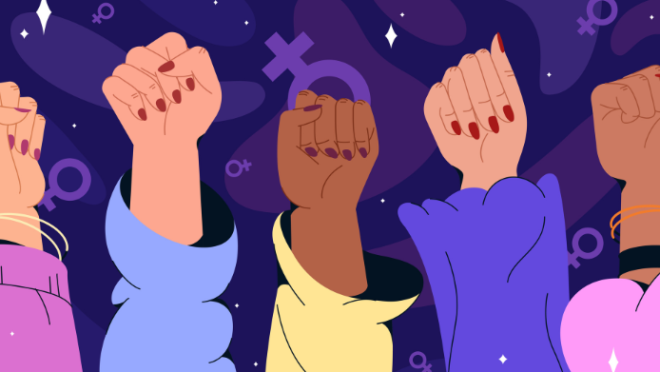What makes our society patriarchal?
What makes our society patriarchal?

I tried to count the amount of rape cases that Bangladesh has had in the first three months of the year. There were more than 120 reported cases, the key word here is reported. We don’t know how many more were swept under the rug for fear of retribution or humiliation. And just one look at the comment section of social media posts discussing sexual violence against women would show you that their fears are more than justified.
More often than not, a significant portion of the population blames the girl. Victim blaming is prevalent in Bangladesh and it shows little sign of slowing down. There are many reasons which make our society a hostile place for a woman to be. Some can be traced back to the days of our hunter-gatherer pasts while others are more recent. So, what are they? What causes our men to look down on women?
Remnant of distant past
When I asked Dr Shahzad Firoz, assistant professor at the Department of Sociology and Political Science at North South University, about the impact of our hunter gatherer pasts on the current society, he said, “Research suggests that in many hunter-gatherer societies, gender roles were more flexible compared to later agricultural societies. However, some groups may have had more rigid roles than others, based on specific survival needs, such as hunting, gathering, or child-rearing, and ensuring safety. The defined gender roles were shaped by the particular circumstances of each society.”
“The rise of property ownership played a significant role in reinforcing gender power dynamics and patriarchal structures. However, it’s important to recognise that patriarchy didn’t develop in a single, uniform way—it was shaped by diverse socio-economic, political, and cultural factors that varied across different societies.” added the social anthropologist.
German philosopher Friedrich Engels said, “The establishment of private property was the watershed moment in human history that gave birth to patriarchy and class oppression.”
Civilisation, religion
The seeds of patriarchy were sowed in the early days of human civilisation, but it became globally prevalent during the days of kingdoms and empires. As human civilisation became a thing, and countries, counties and cultures emerged, so did the dominance of men over women.
Women were neglected when it came to state politics, barred from holding positions of power. This image of women being subservient to men, just because men held the power was echoed amongst all walks of life.
Starting from the family dynamic of men and women, men were expected to be the breadwinner, the sole earner while women would be tasked with looking after the children and the home. Men would gain power in this setting as it forced women to be dependent on them.
Once the advent of formalised religion took place, this emancipation got further institutionalised. American feminist philosopher Mary Daly agreed when she said, “Religion has long been used as a justification for gender hierarchy, portraying male dominance as divinely ordained.”
This gender emancipation was spread around the world through colonialism. As European powers brought their cultures to foreign lands, they forced the local population to adhere to the social norms and traditions set by them. This caused a significant change in areas where gender equality or even matriarchy existed, such as in Africa.
Maria Lugones, a pioneer in the studies that colonialism had on patriarchy and the author of ‘Toward a Decolonial Feminism’ said, “Many indigenous societies had egalitarian or matrilineal structures before colonial rule. The arrival of Europeans often disrupted these systems, replacing them with rigid, male-dominated hierarchies.”
An outdated modern world
I understand where the notion of patriarchy emerged from but why haven’t we been able to deal with it? Unfortunately, uprooting the cultural norms and traditions of vast groups of people in a short period of time is a pretty hard task.
Bangladesh’s society has been patriarchal for as long as history has been recorded. Although some societies and ethnic groups have had matriarchal societies, even in them, you can see the impact patriarchy has had.
A psychologist at North South University, who wished to remain anonymous, has said, “Patriarchy in the current society is enforced from our childhood. Girls are given gender roles through the toys they are bought, and boys are taught through phrases such as, ‘Boys do not cry’.”
“These actions create a vision of how gender roles should be in the society, even though that vision is now archaic and outdated,” he added.
Dr Shahzad Firoz stated in this matter that, “Gender roles in today’s society have been shaped by power dynamics between different groups and influenced by many factors, including socio-economic and political structures. While gender norms are changing, they face resistance from cultural traditions, religious beliefs, and powerful institutions that uphold existing structures.”
“We can only address the problem when we recognise the structural inequalities that exist and how gender intersects with race, ethnicity, class, and other social factors, creating distinct experiences of privilege and oppression.”


